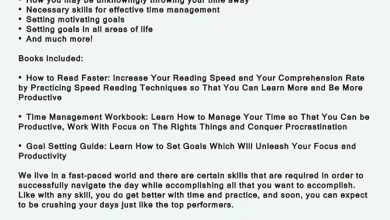How To Sharpen Your Critical Thinking Skills?

In today’s world, where information is abundant and easily accessible, the ability to think critically has become more important than ever. Critical thinking is analyzing information objectively, considering different perspectives, and using reason and logic to make informed decisions.
However, many of us often struggle with this skill. This is because critical thinking is not something that comes naturally to everyone. So, how to sharpen your critical thinking skills?
To sharpen your critical thinking skills, you’ll need to practice actively questioning and evaluating ideas and arguments, and looking for evidence to support or refute them.
Read the entire guide to explore some effective strategies for sharpening your critical thinking skills.
Basics of Critical Thinking
Critical thinking is the method of analyzing and evaluating information to make informative decisions or solve troubles. It concerns basic questions, identifying relevant information, recognizing biases and fallacies, and using logic and reasoning to arrive at a solution.
Basically, critical thinking principles can be applied in both personal and professional contexts, from everyday life to business and career growth.
Business leaders who use critical thinking approaches can make more informed decisions and stay ahead in the market. Career coaches also emphasize critical thinking skills to help individuals make sound decisions in their career development.
Why Should You Sharpen Your Critical Thinking Skills?
In today’s fast-paced and complex world, it’s more important than ever to sharpen your critical thinking skills. Here are some reasons why:
Better Decision-Making Process
Critical thinking helps you to make better decisions. It allows you to evaluate all the available information, analyze it from different angles, and then draw a conclusion. By asking basic questions and avoiding fallacies, you can arrive at a logical and informed decision that considers all the possible outcomes.
Improved Problem-Solving Approaches
Effective problem-solving is a vital aspect of personal and professional life. Critical thinking skills can help you to approach problems systematically and creatively. By thinking outside the box, considering alternative methods and solutions, you can find a more effective solution to complex problems.
Career Growth
Critical thinking skills are highly valued by employers, especially in the business world. Business leaders seek employees who can think critically, analyze data, and make informed decisions. By improving your critical thinking skills, you can enhance your career growth prospects.
Better Understanding of Market Trends
By applying critical thinking principles, you can better understand market trends, identify opportunities, and make informed business decisions. This can help businesses stay ahead of the competition and identify new markets and customers.
Leadership Development
Critical thinking skills are essential for leadership development. Effective leaders are those who can evaluate situations critically, identify problems, and find effective solutions. By improving your critical thinking skills, you can become a better leader and make better decisions for your company or organization.
Better Time Management
Critical thinking skills can also help you manage your time more effectively. By analyzing your daily routines and evaluating your priorities, you can identify the areas that require more attention and allocate your time accordingly.
How To Sharpen Your Critical Thinking Skills?
Developing critical thinking skills requires time and effort. Below, we will discuss some approaches to sharpen your critical thinking skills.
1. Understand the Basic Questions
The first step in developing critical thinking skills is to understand the basic questions. These questions include who, what, when, where, why, and how. By asking these questions, you can break down complex information and get a better understanding of the problem.
2. Challenge Your Assumptions
One of the critical thinking principles is to challenge your assumptions. Don’t take everything at face value; instead, question the information and assumptions presented to you. This approach can help you to identify any fallacies in the argument and make a more informed decision.
3. Learn Different Approaches
Another approach to sharpen your critical thinking skills is to learn different approaches to problem-solving. Some commonly used methods include the Socratic method, Six Thinking Hats, and Mind Mapping. These methods help you to think more creatively, analyze information more effectively, and come up with innovative solutions.
4. Ask the Right Questions
Asking the right questions is a crucial element of critical thinking. By asking open-ended questions, you can gain a deeper understanding of the problem and identify potential solutions. For example, instead of asking “What is the solution to this problem?” ask “What are some alternative solutions to this problem, and what are the pros and cons of each?”
5. Apply Critical Thinking Skills in Real Life
The best way to develop critical thinking skills is to apply them in real-life situations. Start by analyzing everyday problems, such as deciding what to eat for dinner or which route to take to work. As you become more comfortable with the process, move on to more complex problems, such as making career or business decisions.
6. Improve Your Time Management Skills
Time management is essential for critical thinking. When you’re under pressure to make a decision, it’s easy to rush through the process and make a hasty decision. However, taking the time to analyze the information and consider different options can lead to better outcomes.
7. Seek Feedback
Getting feedback from others is an excellent way to improve your critical thinking skills. Share your thought process with friends, family, or colleagues and ask for their feedback. You can also work with a career coach or mentor who can provide guidance and support in developing your critical thinking skills.
Get to Know: How To Promote Critical Thinking In The Classroom?
Common Misconceptions About Critical Thinking
There are many misconceptions about what critical thinking is and how it can be used. Here, we will discuss some of the most common misconceptions about critical thinking and how to overcome them.
Critical Thinking is Just Asking Questions
One common misconception about critical thinking is simply asking a lot of questions. While questioning is an important part of critical thinking, it is not the only aspect. Critical thinking involves analyzing information, evaluating evidence, identifying biases, and making informed decisions. It is a more complex process than simply asking questions.
Critical Thinking is Time-Consuming
Another common misconception about critical thinking is that it takes a lot of time. While critical thinking does require some time and effort, it does not have to be a lengthy process. With practice, critical thinking can become a habit, allowing individuals to analyze information quickly and efficiently. Moreover, critical thinking can save time in the long run by avoiding mistakes and identifying the best solutions.
Critical Thinking is Not Useful in Real Life
Some people believe that critical thinking is only useful in academic settings, and not in real life. However, critical thinking skills are essential in daily life. It allows individuals to analyze information and make informed decisions in various situations, such as selecting a healthcare plan, purchasing a car, or choosing a career.
There is Only One Correct Solution
Many people think that critical thinking leads to a single, correct solution. However, critical thinking involves evaluating multiple options and selecting the best one based on evidence and reasoning. In some situations, there may not be a single correct solution, but rather a range of options that could be considered based on the available information.
Critical Thinking is Only for Higher-Level Employees
Another common misconception about critical thinking is only necessary for higher-level employees in a company. However, critical thinking is beneficial for all employees, regardless of their position. It allows individuals to solve issues, make informed decisions, and identify opportunities for improvement.
Verdicts
In conclusion, “How to sharpen your critical thinking skills” is an important and timely topic. Critical thinking is a valuable tool to have in any situation, whether it is in the workplace, in school, or in everyday life.
While there is no one-size-fits-all approach, there are some effective strategies that help to develop and strengthen your critical thinking skills. With consistent practice and dedication, you can sharpen your critical thinking skills and use them to your advantage.
Read More:
How Does Perception Affect Critical Thinking?
How Are Symbols Related To Critical Thinking?
How Do Emotions Positively And Negatively Influence Critical Thinking?



